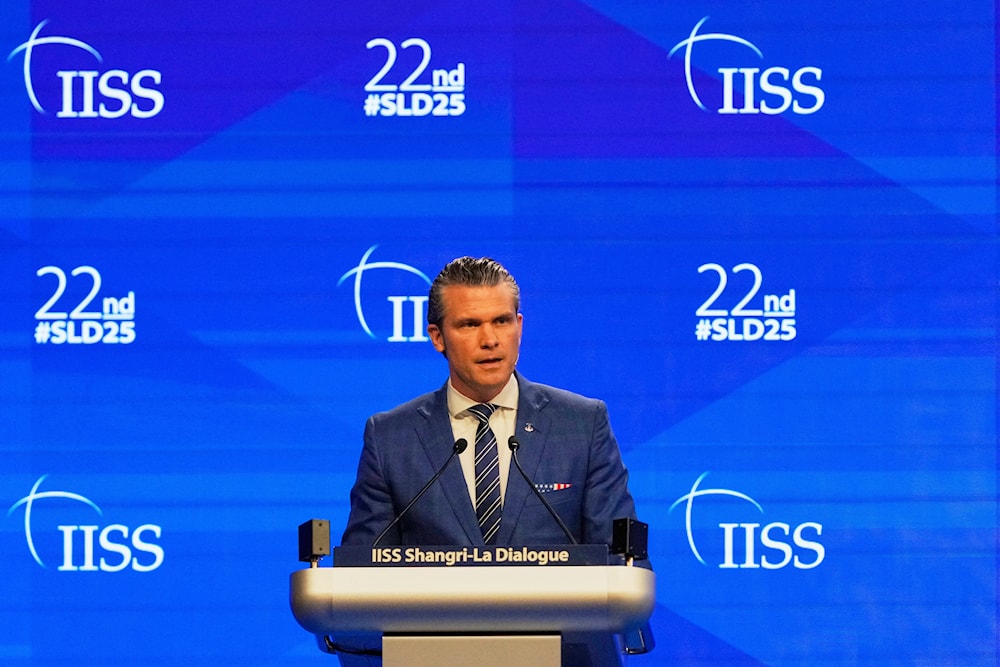Hegseth warns of China while pressuring allies to boost arms spending
US Defense Secretary Pete Hegseth warns of a “real” Chinese threat in the Indo-Pacific, as Washington urges allies to ramp up military spending.
-

United States Defense Secretary Pete Hegseth delivers his speech during the 22nd Shangri-La Dialogue summit in Singapore, on May 31, 2025. (AP)
US Defense Secretary Pete Hegseth issued warnings on Saturday regarding China’s growing military presence in the Asia-Pacific, claiming Beijing is preparing to shift the regional balance of power through force — remarks that reflect Washington’s continued drive to militarize the Indo-Pacific under the pretext of "deterrence."
Speaking at the Shangri-La Dialogue in Singapore, Hegseth alleged that China was "credibly preparing to potentially use military force to alter the balance of power in the Indo-Pacific." He accused Beijing of seeking to "dominate and control" the region, while claiming that the Chinese military is actively "training every day and rehearsing for the real deal" in reference to Taiwan.
The Pentagon chief’s statements come amid growing US military engagement in Asia, marked by expanded cooperation with Japan and the Philippines, and deeper defense ties with India.
"The United States is reorienting toward deterring aggression by communist China," Hegseth said, underscoring Washington’s efforts to position itself as a security guarantor while escalating tensions with Beijing.
Read more: US to boost Taiwan arms sales beyond Trump's $18.3B benchmark
US pushes Indo-Pacific allies to boost military spending
Hegseth also called on US-aligned governments in the region to significantly boost military expenditures, drawing comparisons to NATO members in Europe.
"It’s hard to believe a little bit... that I’m saying this, but thanks to President Trump, Asian allies should look to countries in Europe for a newfound example," he remarked, referring to Germany’s recent pledge to move toward Trump’s proposed target of five percent of GDP in defense spending.
"Deterrence doesn’t come on the cheap," he added.
The US-led security posture in the region has drawn criticism from multiple governments, including China, which views the moves as provocative and destabilizing. Beijing maintains that Taiwan is part of its sovereign territory and has repeatedly warned against foreign interference in its internal affairs.
Read more: One Chinese shipyard outbuilt entire US industry since WWII in one yr.

 2 Min Read
2 Min Read










